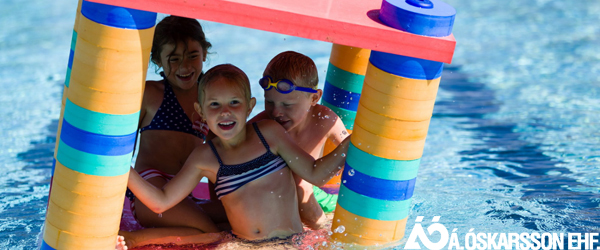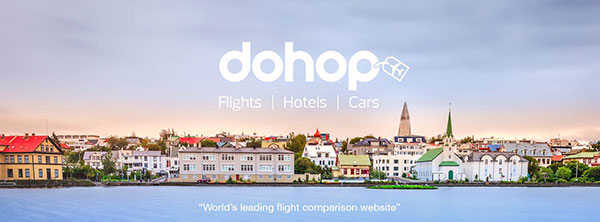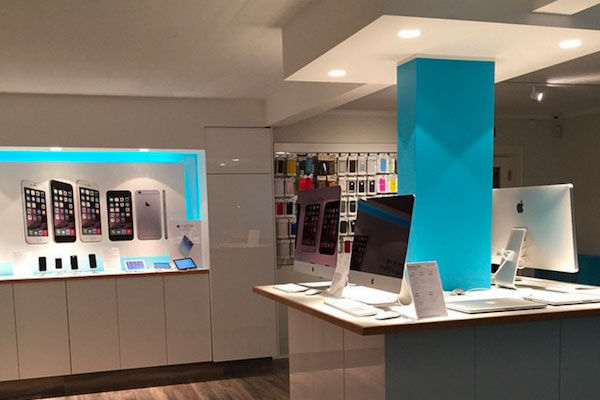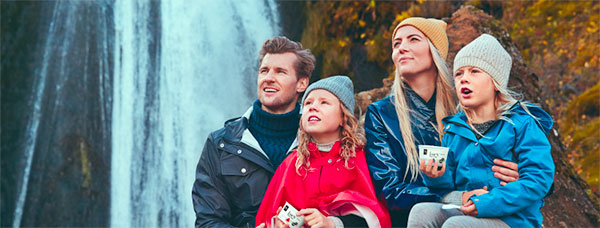OPINION by Ugla Stefanía.
Icelandic below.
Yesterday an article by journalist Ingi Freyr Vilhjálmsson was published in Stundin, where life-saving services for trans youth is wrongfully described as “experimental”, and a doctor quoted that appears to have no expertise in that particular field, nor appears to have worked with trans youth and trans people in trans related health care.
Refuting every inaccuracy of the article would be near impossible, and would no doubt be twice as long as the original article. A short summary of the main inaccuracies will therefore have to do.
The goal of health care and doctors is to increase the well-being and life quality of people and it’s obvious that trans related health care has achieved that for trans people. This is something I know from personal experience.
To start with it must be considered be a grave attack on the professional integrity of those who oversee these services to call it ‘experiments’ – as those sorts of statements are clearly false and incredibly serious.
In the article the head of the children’s psychiatric unit at the national hospital, Björn Hjálmarsson, is quoted saying that services provided to trans youth are not built upon a reliable scientific basis, but rather ‘ignorance’ and ‘activism’. Shortly after the article was published however, he releases a statement where he says he regrets those words and that the services provided are rightfully based on ‘international guidelines and peer reviewed research’.
Services provided to trans youth in Iceland is based on the most comprehensive international guidelines and standards available, which is published by World Organisation of Transgender Health (WPATH) – but those guidelines are based on experience, knowledge and best research available in the field. The services provided are therefore irrefutably based on a strong scientific basis and is far from being ‘experiements’.
The article often references medication being given to children, and I question that those who are quoted in the article know much about the services provided in Iceland, and that they have any first-hand knowledge or experience with them. The article repeatedly references health authorities in Sweden, but they recently published conservative guidelines based on a case in the UK, which resulted in care for trans youth under 16 to be temporarily halted. The services have now been resumed after the appeal court in the UK found the services to be in line with legal requirement and international guidelines.
Young people only get access to puberty blockers after extensive evaluation by doctors and other experts that specialise in care for young trans people. The service is only provided by one department at The National University Hospital of Iceland and the waiting lists are up to one year long.
In Iceland young people can get access to puberty blockers, in order to prevent dysphoria and physical changes caused by puberty, that can traumatise them and negatively effect their mental well-being.
Young people only get access to puberty blockers after extensive evaluation by doctors and other experts that specialise in care for young trans people. The service is only provided by one department at The National University Hospital of Iceland and the waiting lists are up to one year long, on top of waiting times for appointments and diagnostic processes. Young people and their families have often struggled to get access to relevant care, and as an example there was no official working trans team for young people at The National University Hospital of Iceland in 2020.
No young person therefore gets access to these services without having to wait for a long time, and without there being a clear basis for treatment. Puberty blockers are only prescribed to young people that experience deep distress and dysphoria, and display signs of social anxiety, depression, self harm or suicidal thoughts as a result. No irreversible interventions or surgeries are performed on people under 18, as puberty blockers simply put on pause the effects of puberty and give young people breathing space to decide whether or not they want cross-hormones or surgeries later on or not.
The services provided in Iceland are therefore in line with the best available guidelines published by WPATH, but in the article by Stundin the journalist never quotes them or countries that follow them already, but only mentions countries that have taken a more conservative and restrictive approach.

Puberty blockers have been used for over three decades, and are amongst other things used on children with onset puberty, often for much longer periods of time than trans youth. All medication can lead to side effects and are young people given medication under the care of specialists while under their care, like in all other services provided. Young people and their families also get all the information available about possible side effects and are made aware of what the medication does.
Despite the fact that the same side effects might occur for other young people taking the same medication for a different purpose, the medication was never criticised until it was used for young trans people. This reveals quite clearly that there is an attempt to unfairly paint the services provided for young trans people as experimental or harmful by cherry-picking cases and fear mongering, instead of focusing on the overwhelming majority of those that benefit from these services.
It is also unclear what laws the journalist writing the article thinks are being broken like he implies Sigríður Birna, a family therapist at the National Queer Organisation of Iceland, is suggesting when she describes the importance of these services.
Sigríður Birna has extensive experience working with trans youth and their families with the National Queer Organisation of Iceland, and from my perspective the journalist is undermining the professional integrity of Sigríður Birna despite her extensive knowledge and expertise.
Puberty blockers have been used for over three decades, and are amongst other things used on children with onset puberty, often for much longer periods of time than trans youth … the medication was never criticised until it was used for young trans people.
A doctor that is quoted in the article takes things out of context and references statistics that have been repeatedly refuted by experts in the field, or negatively interprets research data by grabbing sentences and quotes from various sources in order to paint a certain picture. These views are something I am very familiar with, as they are taken directly from the playbook of hate groups in the UK that actively campaign against trans rights.
The views and generalisations that the doctor spews are based on a questionable and weak foundation, and it becomes quite obvious to me that they have no knowledge on the trans community in Iceland and the services provided here.
It’s incredibly questionable that she is allowed to put forward views without question that claim that young trans people will simply grow out of it and come to terms with their ‘biological sex’ – but such views are based on deeply homophobic rhetoric, which has been actively used against gay and bisexual people, claiming that it is just a phase and they will eventually come to terms with their heterosexuality.
What this type of discourse suggests is that being queer is wrong and that people should just come to terms with being ‘normal’ instead. But there is nothing wrong with being queer, and people simply have to come to terms with the fact that queer people are a part of society and we have the same right as everyone else to express ourselves in a way that makes us happy – without our queerness being constantly doubted because of ignorance and prejudice.
This discourse contributes to prejudice and violence that queer people experience in Iceland, but recent news coverage in the Icelandic news programme Kastljós revealed that Icelandic queer youth experience repeated harassment and violence in Iceland simply for being who they are. In these interviews queer youth describe how they are talked, repeatedly physically assaulted by their peers and how they are afraid to leave their own house as a result.
The fact that Stundin decides to publish this following this shocking coverage is unbelievable and simply continues to fuel prejudice and discrimination that is still a huge problem in Iceland for young queer people.
The doctor quoted in the article and the journalist in question should spend less time making unfair and ridiculous attacks on services provided for trans youth in Iceland under the guise of concern and well-being, and rather focus their efforts towards the evident harassment and violence that young queer people experience in Iceland today. If they really want to increase the well-being of young queer people in Iceland, it would be a much better place to start where there is real need for support and empathy.
By no means does that mean that we cannot have constructive discussions about health care for young trans people, and trans people in general. But these discussions must be based on the foundation of increasing the quality of these services so that everyone can get well-rounded care that betters their well-being and mental health. Discussions of this kind should never be centered about removing services that have proven to be incredibly vital for a vulnerable group of people, as the consequences of such would be devastating.

The goal of health care and doctors is to increase the well-being and life quality of people and it’s obvious that trans related health care has achieved that for trans people. This is something I know from personal experience, as the services I got from The National University Hospital in Iceland was life-saving and helped me to live my life happily in my own skin.
If I had the opportunities that young people have today growing up I would’ve without a doubt started puberty blockers, to prevent puberty from changing my body in a way that caused me deep distress and trauma as a child. All trans people were kids once, and most of us wish that we would’ve had the same opportunities as our younger generations have now.
This coverage by Stundin paints an unbalanced and misleading picture of the services provided to young trans people in Iceland, where negative and hateful discourse is given more space than the incredible amount of families and young people that have benefitted from these services.
No irreversible interventions or surgeries are performed on people under 18, as puberty blockers simply put on pause the effects of puberty and give young people breathing space to decide whether or not they want cross-hormones or surgeries later on or not.
The coverage is far from being showing a comprehensive picture of the services provided and is very one-sided – which does in no way increase people’s awareness of the services actually provided, nor provides a constructive insight into the intricacies of it.
Experts within The National University Hospital and other specialists, and more importantly young people and their families, deserve more from the Icelandic media. It is unacceptable that they are accused of running experiments on children, as it could not be further from the truth.
I therefore want to ask Stundin to delve deeper into the services provided so that a more well-rounded and positive coverage can be made, which shows real people and their experiences, instead of focusing on quoting those that have no direct connection with the people and the services they are provided with.
We are talking about the well-being of children, and I doubt that those who are the biggest opponents of this type of care have any direct connection with young trans people and their families. It should be clear to anyone who does how important and precious these services are to them.
//
Heilbrigðisþjónusta fyrir trans ungmenni er lífsbjörg
Ugla Stefanía skrifar.
Í gær birtist grein í Stundinni eftir Inga Frey Vilhjálmsson með fyrirsögninni „Áralangar tilraunir á íslenskum transbörnum: „Í myrkri aktívisma og fákunnáttu“ þar sem lífsnauðsynlegri þjónustu fyrir trans ungmenni var ranglega líkt við tilraunastarfsemi og meðal annars tekið viðtal við lækni sem virðist enga sérfræðiþekkingu á þessu sviði hafa, né virðist hafa starfað með trans ungmennum eða trans fólki í slíkri þjónustu.
Að hrekja hverja og einustu rangfærslu væri því nær ómögulegt, og myndi eflaust vera efni í tvöfalt lengri grein en upprunalega umfjöllunin, og mun ég því stikla á stóru hér.
Markmið heilbrigðiskerfisins og lækna er að auka velferð og lífsgæði fólks og gefur það auga leið að þessi heilbrigðisþjónusta hefur gert það fyrir trans fólk. Það þekki ég af eigin skinni.
Til að byrja með þá hlýtur það að vera alvarleg aðför að starfsheiðri þeirra sem veita þessa þjónustu hérlendis að kalla hana „tilraunastarfsemi“, enda slíkar yfirlýsingar í raun rangar og gríðarlega alvarlegar.
Í greininni er vitnað í orð Björns Hjálmarssonar, yfirlæknis Barna- og unlingageðdeildar Landspítala, þar sem því er haldið fram að hann telji þessa þjónustu ekki byggða á traustum vísindalegum grunni, heldur „fávisku“ og „aktívisma“, en stuttu eftir birtingu þessara umfjöllunar gaf hann út yfirlýsingu þar sem hann biðst afsökunar á þeim orðum og lýsir yfir stuðningi við þjónustuna og segir hana réttilega byggða á „alþjóðlegum viðmiðum og gagnreyndum rannsóknum“.
Sú þjónusta sem trans börnum og unglingum er veitt hérlendis er einmitt byggð á fremstu alþjóðlegu verklagsreglum á þessu sviði, sem eru gefin út af alþjóðlegum samtökum að nafni World Organisation of Transgender Health (WPATH) — en ráðleggingar þeirra að verklagsreglum eru byggðar á reynslu, þekkingu og fremstu rannsóknum á þessu sviði. Sú þjónusta sem er veitt er því byggð á traustum vísindalegum grunni og er langt frá því að vera einhver tilraunastarfsemi.
Í greininni er einnig mikið talað um „lyfjagjöf“ til barna og set ég spurningarmerki við það að þau sem tjá sig um þá heilbrigðisþjónustu sem er veitt hérlendis hafa enga raunverulega vitneskju um hana, eða hvernig hún fer raunverulega fram. Ítrekað er vitnað í heilbrigðis yfirvöld í Svíþjóð, en nýlega voru gefnar út íhaldssöm viðmið um þjónustu í kjölfar dóms sem féll í Bretlandi, þar sem þjónusta fyrir trans ungmenni undir 16 ára aldri var tímabundið stöðvuð, en hún er nú hafin á ný eftir að áfrýjunardómur dæmdi þjónustuna lögmæta og í samræmi við alþjóðareglur.
Ekkert barn fær ávísað blokkerum án þess að það fari fram ítarlegt mat lækna og annarra sérfræðinga sem sérhæfa sig í þessum efnum. Þessi þjónusta er eingöngu veitt á Barna- og unglingageðdeild Landspítala og er biðtími eftir þjónustu þar allt að eitt ár, ofan á þann tíma sem fer svo í viðtöl og greiningar.
Á Íslandi geta ungmenni fengið aðgengi að hormónabælandi lyfjum, eða svokölluðum blokkerum, við kynþroska til að koma í veg fyrir alvarlega vanlíðan og líkamlegar breytingar sem valda ungmennum ómældum skaða og vanlíðan.
Ekkert barn fær ávísað blokkerum án þess að það fari fram ítarlegt mat lækna og annarra sérfræðinga sem sérhæfa sig í þessum efnum. Þessi þjónusta er eingöngu veitt á Barna- og unglingageðdeild Landspítala og er biðtími eftir þjónustu þar allt að eitt ár, ofan á þann tíma sem fer svo í viðtöl og greiningar. Foreldrar og ungmenni hafa því oft átt erfitt með að fá aðgengi að blokkerum, en ekkert trans teymi var starfandi á Barna- og unglingageðdeild nær allt árið 2020.
Það fær því enginn aðgengi að þessari þjónustu nema að vel ígrunduðu máli og eftir langan biðtíma, en eingöngu er verið að ávísa ungmennum blokkera sem upplifa djúpstæða vanlíðan á borð við félagskvíða, þunglyndi, sjálfsskaða og sjálfsvígshugsanir. Engar skurðaðgerðir eru framkvæmdar á börnum né önnur óafturkræf inngrip, enda hægja blokkerar eingöngu á áhrifum kynþroska og gefa ungmennum rými til að ákveða hvort þau vilji undirgangast hormónameðferðir eða skurðaðgerðir síðar meir eða ekki.
Það verklag sem farið er eftir er í samræmi við fremstu verklagsreglur á þessu sviði sem gefnar eru út af World Organisation of Health (WPATH), en hvergi í grein Stundarinnar er vitnað í þær reglur eða verklagsreglur landa sem fylgja þeim, heldur eingöngu vitnað í lönd sem hafa íhaldssamari regluverk í þessum efnum.

Þess má geta að blokkerar hafa verið notaðir í heilbrigðisþjónustu í hátt í þrjá áratugi, en til dæmis er börnum sem eru bráðþroska gefin sambærileg lyf, oft til lengri tíma. Allri lyfjagjöf fylgir áhætta á aukaverkunum og eru ungmenni sem fá slík lyf undir eftirliti sérfræðinga á meðan lyfjagjöf stendur, líkt og í allri þjónustu. Forráðamenn og unglingarnir sjálfir fá sömuleiðis upplýsingar um hugsanlegar aukaverkanir líkt og í annarri þjónustu og eru meðvituð um þær.
Þrátt fyrir að möguleiki sé á sömu aukaverkunum fyrir aðra unglinga sem taka sömu lyf af öðrum ástæðum, þá hafa lyfin aldrei hlotið gagnrýni fyrr en byrjað var að nota þau í þjónustu fyrir trans ungmenni. Það sýnir skýrt fram á að reynt er á ósanngjarnan hátt að draga fram neikvæða mynd af þessari þjónustu með einstaka dæmum og hræðsluáróðri, í stað þess að beina sjónum sínum að þeim yfirgnæfandi meirihluta sem nýtur góðs af henni.
Það er því óljóst hvaða lög blaðamaður telur að sé verið að hvetja til að brjóta eins og hann gefur í skyn að Sigríður Birna, fjölskyldumeðferðarfræðingur hjá Samtökunum ‘78, sé að segja þegar hún lýsir mikilvægi þessarar þjónustu.
Þess má geta að Sigríður Birna hefur starfað um árabil hjá Samtökunum ‘78 og hefur unnið náið með trans ungmennum og aðstandendum í sínu starfi. Blaðamaður gerir því hér tilraun til að draga úr trúverðugleika hennar þrátt fyrir gríðarlega reynslu og fagþekkingu hennar á þessu sviði.
Þess má geta að blokkerar hafa verið notaðir í heilbrigðisþjónustu í hátt í þrjá áratugi, en til dæmis er börnum sem eru bráðþroska gefin sambærileg lyf, oft til lengri tíma … hafa lyfin aldrei hlotið gagnrýni fyrr en byrjað var að nota þau í þjónustu fyrir trans ungmenni.
Í staðhæfingum læknis sem er tekið viðtal við í greininni er frjálslega farið með staðreyndir, þar sem vitnað er í misvísandi tölur sem hafa verið hraktar af sérfræðingum og fagfólki, eða þar sem rannsóknir eru túlkaðar á neikvæðan hátt og setningar gripnar héðan og þaðan til að þóknast málflutningi viðkomandi. Þau viðhorf sem hún setur fram þekki ég vel, enda þrálátt stef í fjandsamlegri og ómannúðlegri baráttu haturshópa í Bretlandi sem beita sér gagngert gegn réttindarbaráttu trans fólks.
Þær staðhæfingar og alhæfingar sem hún hendir fram eru því á veikum grunni byggðar og finnst mér það gefa auga leið að viðkomandi læknir þekkir lítið sem ekkert til trans samfélagsins og þeirrar þjónustu sem er veitt hérlendis.
Það er varhugavert að hún fái að setja fram viðhorf um að trans ungmenni „sætti sig við sitt líffræðilega kyn“ á endanum — en slíkt lyktar af djúpstæðum fordómum og skilningsleysi á sjálfsvitund trans fólks og hinsegin fólks almennt, en slíkar staðhæfingar hafa líka verið notaðar gegn samkynhneigðum og tvíkynhneigðum, þ.e. að þau „sætti sig bara við sína gagnkynhneigð“.
Þetta orðalag gefur í skyn að það sé eitthvað að því að vera hinsegin og að fólk eigi bara að „sætta sig við“ að vera „venjulegt“. Það er ekkert að því að vera hinsegin, og þarf fólk einfaldlega að sætta sig við það að við erum hluti af mannflórunni og við eigum sama rétt og annað fólk á því að tjá okkur á þann máta sem við kjósum — án þess að hinseginleiki okkar sé sífellt dregin í efa sökum vanþekkingar og fordóma.
Slík viðhorf ýta undir fordóma og jafnvel ofbeldi í garð hinsegin fólks og hinsegin ungmenna, en nýleg umfjöllun í Kastljósi sýnir svart á hvítu að hinsegin ungmenni verða fyrir ítrekuðu áreiti og ofbeldi á Íslandi fyrir það eitt að vera hinsegin. Þar lýsa ungmenni því að þau séu elt á röndum, hafi verið grýtt og séu hrædd að fara úr húsi vegna áreitis jafnaldra sinna.
Að Stundin ákveði að birta slíka grein í kjölfar þess er í raun ótrúlegt, og einfaldlega til þess gert að ýta undir þau fjandsamlegu viðhorf sem eru viðvarandi í íslensku samfélagi.
Viðmælendur og blaðamaður ættu að eyða minni tíma í svona óvæga umfjöllum um þjónustu fyrir trans ungmenni og starf fagfólks í yfirskyni áhyggja og velferðar, og beina frekar sjónum sínum að því hrópandi áreiti og ofbeldi sem hinsegin ungmenni verða fyrir á Íslandi í dag. Ef þau vilja virkilega beita sér fyrir velferð trans ungmenna hérlendis þá er kjörið að byrja þar sem raunveruleg þörf er á stuðningi og umhyggju.

Það þýðir samt sem áður ekki að ekki megi eiga uppbyggilega umræðu um heilbrigðisþjónustu fyrir trans ungmenni og trans fólk almennt. En sú umræða verður að hafa það markmið að finna leiðir til þess að bæta þjónustuna og sjá til þess að allt trans fólk geti fengið góða og heildræna þjónustu sem eykur velferð og líðan fólks. Svona umræða á aldrei að vera til þess að fjarlægja þjónustu, enda getur slíkt haft gríðarlega skaðlegar afleiðingar fyrir viðkvæman hóp fólks.
Markmið heilbrigðiskerfisins og lækna er að auka velferð og lífsgæði fólks og gefur það auga leið að þessi heilbrigðisþjónusta hefur gert það fyrir trans fólk. Það þekki ég af eigin skinni, en sú þjónusta sem ég fékk frá Landspítala var mér lífsnauðsynleg og gerði það að verkum að ég gat lifað sátt í eigin skinni.
Hefði ég haft þau tækifæri sem ungmenni hafa í dag þá hefði ég hiklaust viljað fara á hormónablokkera, til að koma í veg fyrir kynþroska og líkamlegar breytingar sem ollu mér djúpstæðri vanlíðan sem barn. Allt fullorðið trans fólk var nefnilega börn og unglingar einu sinni og hefðu lang flest viljað óska þess að hafa þau tækifæri sem yngri kynslóðir hafa í dag.
Engar skurðaðgerðir eru framkvæmdar á börnum né önnur óafturkræf inngrip, enda hægja blokkerar eingöngu á áhrifum kynþroska og gefa ungmennum rými til að ákveða hvort þau vilji undirgangast hormónameðferðir eða skurðaðgerðir síðar meir eða ekki.
Í þessari umfjöllun Stundarinnar er því beinlínis verið að mála ranga mynd af heilbrigðisþjónustu fyrir trans ungmenni og fjandsamlegum viðhorfum gefið meira vægi en fjöldinn allur af þeim fjölskyldum og ungmennum sem hafa notið góðs af þessari þjónustu.
Þessi umfjöllun er því langt frá því að vera heildræn umfjöllum sem tekur á öllum hliðum þessar þjónustu þar zem nálgun hennar er ekki til þess fallinn að auka skilning eða varpa ljósi á mismunandi þætti þjónustunnar á málefnalegum grundvelli.
Sérfræðingar á Landspítala og annað fagfólk, og ekki síst trans ungmenni og fjölskyldur þeirra eiga meira skilið frá fjölmiðlum landsins en að þurfa að sitja undir ásökunum um að þau séu að stunda tilraunastarfsemi.
Ég skora því á Stundina til að kafað verði mun dýpra í þessu mál, og að heildræn og jákvæð umfjöllun um málefni trans ungmenna verði gerð, sem sýna raunverulega mynd og raunverulegar aðstæður fólks, í stað þess að vitna í einstaklinga sem virðast ekki tengjast fólkinu eða þjónustunni sem um ræðir á nokkurn hátt.
Við erum að tala hér um velferð ungmenna og efast ég um að þau sem tala hvað mest gegn þessari þjónustu hafi nokkurn tímann eytt einhverjum tíma með eða myndað tengsl við trans ungmenni og fjölskyldur þeirra. Öllum sem gera það ætti að vera deginum ljósara hvers vegna þessi þjónusta er svo ótrúlega mikilvæg og dýrmæt.







